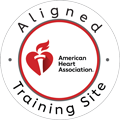Advanced Cardiovascular Life Support (ACLS) certification is a crucial credential for healthcare professionals involved in managing cardiac emergencies. It equips providers with the knowledge and skills necessary to respond effectively to life-threatening situations.
The ACLS pretest serves as an essential component of the certification process, assessing candidates’ readiness and understanding of key concepts. Success on the pretest indicates preparedness for the full ACLS certification examination.
Understanding the ACLS Pretest
The ACLS pretest is a diagnostic assessment designed to evaluate candidates’ knowledge and proficiency in ACLS principles and protocols. It helps identify areas of strengths and weaknesses, guiding candidates in their preparation efforts. The pretest covers a range of topics, including cardiac rhythms, pharmacology, algorithms, and protocols. It typically consists of multiple-choice questions, simulating the format of the certification examination.
The pretest serves as a barometer of readiness, allowing candidates to gauge their understanding of ACLS concepts and identify areas requiring further study. It provides valuable feedback for targeted preparation.
Preparation Strategies
Establishing a Study Schedule:
Creating a structured study schedule helps candidates allocate time efficiently to cover all ACLS topics thoroughly. A balanced approach ensures comprehensive preparation without feeling overwhelmed.
Utilizing Official ACLS Study Materials:
Call Us Now
Get the Best CPR Class in Indianapolis Today!
Official ACLS study materials, such as textbooks, manuals, and online resources provided by reputable organizations like the American Heart Association (AHA), offer authoritative content aligned with certification requirements.
- Benefits of Practice Tests: Practice tests simulate the exam environment and allow candidates to familiarize themselves with the format and types of questions they may encounter.
- Recommended Resources for Practice Exams: Online platforms, ACLS review courses, and study guides offer a wealth of practice questions and simulated exams to enhance preparation.
- Effective Study Techniques for Mastering ACLS Concepts:
Active learning strategies, such as concept mapping, mnemonics, and self-assessment quizzes, promote deeper understanding and retention of ACLS concepts. Interactive study sessions with peers or instructors facilitate collaborative learning and knowledge reinforcement.

Key Concepts and Topics
Cardiac Rhythms and Interpretation:
Common Cardiac Rhythms Tested: The pretest assesses candidates’ ability to identify and interpret various cardiac rhythms, including sinus rhythms, atrial fibrillation, ventricular tachycardia, and asystole.
Interpretation Tips and Tricks: Understanding rhythm characteristics, morphology, and associated clinical implications aids in accurate interpretation and intervention selection.
Pharmacology:
Associated with ACLS is crucial for healthcare professionals engaged in managing cardiovascular emergencies. The judicious use of medications in ACLS scenarios is aimed at restoring and maintaining effective cardiac function, ultimately improving patient outcomes in critical situations.
Important Medications and Their Effects: Candidates must be familiar with ACLS medications, such as epinephrine, amiodarone, and adenosine, and understand their indications, contraindications, and adverse effects.
Dosages and Administration Guidelines: Knowledge of medication dosages, routes of administration, and recommended infusion rates is essential for safe and effective drug administration during resuscitation.
Algorithms and Protocols:
Overview of ACLS Algorithms: Candidates must demonstrate proficiency in ACLS algorithms, including cardiac arrest, bradycardia, tachycardia, and pulseless electrical activity (PEA)/asystole.
Step-by-Step Approach to Applying Algorithms: Understanding the sequential steps outlined in ACLS algorithms facilitates systematic assessment and intervention delivery in emergency scenarios.
Test-Taking Strategies
Effective time management ensures candidates allocate sufficient time to each question while completing the pretest within the allotted timeframe. Strategies such as eliminating distractors, identifying keywords, and applying critical thinking skills aid in selecting the most appropriate answer choices. Remaining calm, confident, and focused helps candidates navigate challenging questions and prevent anxiety from impeding performance. Candidates should allocate time to review their responses, ensuring accuracy and completeness before final submission.
Practical Tips for Success
Prioritizing self-care, including adequate rest, hydration, and nutrition, optimizes cognitive function and enhances performance on the pretest. Candidates should seek clarification from instructors, peers, or additional resources on any concepts or topics they find challenging or unclear. Maintaining a positive mindset, controlling stress levels, and focusing on the task at hand contribute to a successful pretest experience. Reflecting on pretest performance, identifying areas for improvement, and adjusting study strategies accordingly fosters ongoing learning and skill development.
The ACLS pretest is a vital step in the certification process, assessing candidates’ readiness and understanding of ACLS principles. Effective preparation strategies, mastery of key concepts, and test-taking strategies are essential for success. With dedication, diligence, and the right mindset, mastering the ACLS pretest is attainable, paving the way for certification success and enhanced patient care outcomes.
In conclusion, mastering the ACLS pretest is undeniably your key to certification success. Whether you’re seeking CPR certification in Indianapolis or ACLS certification in Indianapolis, CPR Indianapolis stands as the premier American Heart Association training site. With a commitment to providing stress-free, hands-on instruction, CPR Indianapolis offers initial certifications and renewals in a variety of essential courses, including BLS for Healthcare Providers, ACLS, PALS, CPR, and First Aid. Elevate your skills, secure your certification, and embark on your journey toward becoming a proficient healthcare provider with the best CPR training Indianapolis has to offer.


